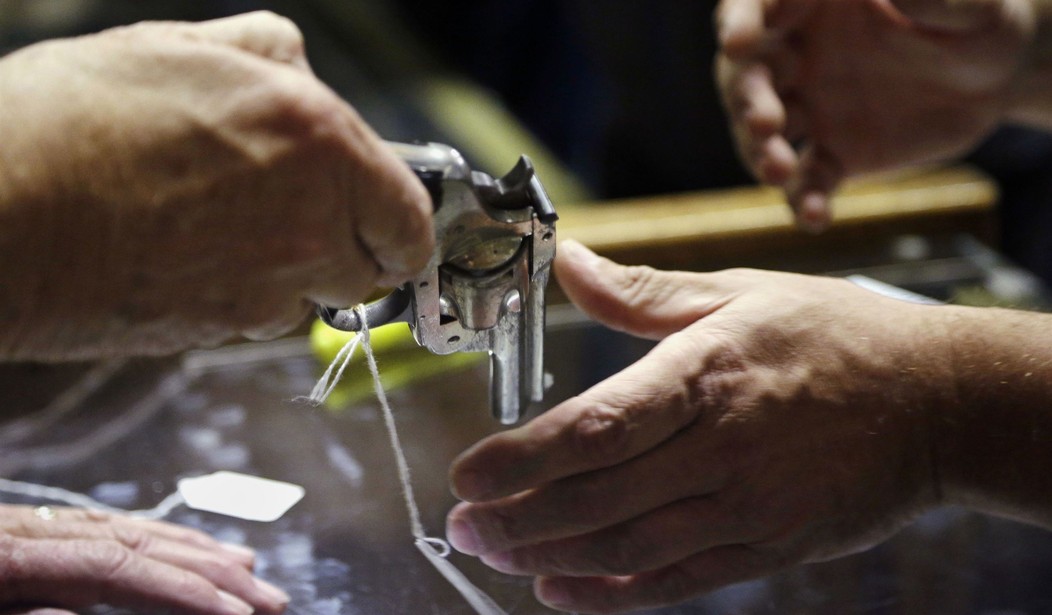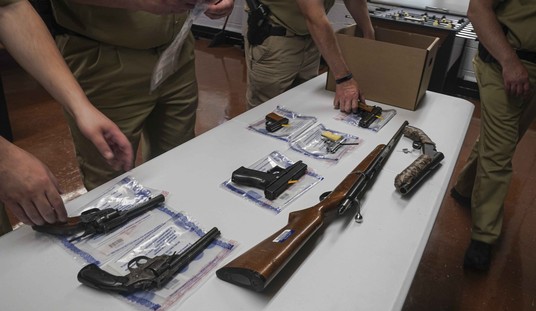I remember when I turned 18 all those many years ago. It was an important time in my life. Of course, it was a Monday on a three-day weekend, so I didn’t have to go to school, which was really the best present I could have imagined. I also knew that it marked an important point. In the eyes of the law, I was a man.
At that point, I could enlist in the military, register to vote, sign contracts, and do a number of other things I literally couldn’t have done a single day before. We delineate 18-year-olds as adults and expect them to act like it.
However, some don’t think that age group is entitled to their basic civil liberties.
For most purposes — signing contracts, entering the military, marrying without parental permission and living independently — an American is legally an adult at age 18. But a panel of federal appellate judges erred last week in deciding that this also should extend to the purchase of handguns.
Buying a gun isn’t like signing up for a gym membership. A handgun’s main purpose is to kill or injure, and a study in Los Angeles County found that 18- to 20-year-olds are far more likely to commit violent acts with a firearm than older people. We know much more about the maturing brain than we used to; it is still undergoing major change in the first years of “adulthood.” A rash decision with a handgun carries far more serious consequences than eloping to Vegas.
According to the U.S. Justice Department, “the age at which people most frequently commit homicide was 18.” And the youngest adults — ages 18 through 20 — ranked first among all age groups for the number of homicides committed with guns, at 24%.
It can be a tricky matter, this business of deciding when a person is an adult. Anyone charged with a crime who is 18 is charged as an adult. Yet, decades ago, the legal drinking age was 18; now it’s 21. At the end of 2019, federal legislation pushed the legal age to purchase tobacco products to 21 as well.
As an editorial board, we opposed that move on tobacco. It seemed to us that people old enough to hold down a job and buy a house were certainly old enough to make bad decisions about their own health.
So, they opposed a matter of public health but also think 18-year-olds shouldn’t be entitled to the full slate of their constitutionally protected rights?
Talk about inconsistent.
Now, they may not be wrong about the age when people most frequently commit homicide. Where they miss the boat is the world that surrounds most of those first homicides. Of course, when you look at the numbers, a lot of killers are also over 21 as well.
While much has been made of the Parkland killer purchasing a firearm lawfully then killing people, that’s the exception, not the rule. Many of those 18-year-old killers are members of street gangs. Others have a history of criminal activity well before then. In either case, they’ve been carrying a gun for years in many cases, despite not being old enough. Then they commit a murder as part of a long line of criminal acts with illegally obtained firearms, often despite them being able to lawfully purchase a firearm.
Meanwhile, millions of others between the ages of 18 and 20 are still law-abiding citizens with no history of criminal activity. Those I mention above? They’re a distinct minority.
Yet we think nothing of allowing people in this age category to own cars. Never mind that cars kill more people every year than guns ever do and yes, drivers in this age range account for a lot of accidents. That never seems to come up.
“But young people’s brains aren’t done developing,” some might say, and that’s what the experts tell us. However, let’s also remember that we seal juvenile records because of that issue, making sure past mistakes aren’t held against kids as they become adults, but by 18, we have no qualms about allowing those errors in judgement to impact the rest of their lives.
So either 18-years-old is an adult or it’s not.
What the editors in the above-linked editorial are claiming, though, is that while an 18-year-old can buy a house, they can’t be trusted with the means to defend that home.
In other words, they’re second-class citizens who aren’t given the full complement of civil liberties the rest of us enjoy. Nope, sorry, I’m not buying it.








